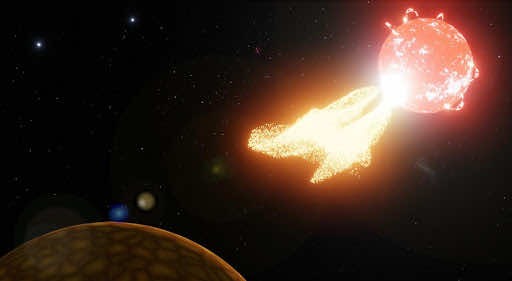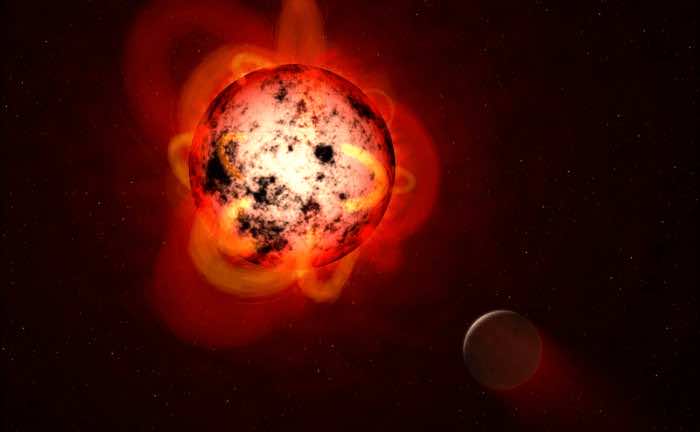Scientists just termed a gigantic wave of fire as the biggest flare ever recorded in the Milky Way. And it might have wiped out alien life on another planet.
The flowing flare was seen coming out from the Proxima Centauri, the closest star to the sun, that lies 9.46 trillion kilometers and 4.243 light-years away from earth. Scientists claimed of recording the massive burst of fire from the “red-dwarf” star, the distance of which from the sun is almost the same that it has from the earth.
Scientists state it holds a significant position. Why? Because it is the closest known star to the sun and serves as a solar host to at least two planets. It is one-eighth the size of the sun, but the flare it blew into the milky way is termed as the largest and deadliest radiation that came out from the surface of a star ever.

A journal published in the Astrophysical Letters states, “The flare was so big that scientists think it may have spelled doom for any life present on nearby exoplanets in orbit, reshaping the search for life beyond Earth’s solar system.”
“The star went from normal to 14,00 times brighter when seen in ultraviolet wavelengths over the span of a few seconds,” said MacGregor, an assistant professor at the Center for Astrophysics and Space Astronomy (CASA). The discovery has paved the path for a new physics that will probably change how we perceive stellar fires.
As per the scientists, the colossal solar flare was so big that it sure would have burnt out any extra-terrestrial life on a planet near the Proxima Centauri, to start with, if there was any.

“If there were life on the planet nearest to Proxima Centauri, it would have to look very different than anything on Earth,” explained MacGregor. He said this while explaining how humans won’t be able to survive in those conditions. For whatever nation reside there, they must be able to cope with the atmosphere only if left after the massive milky way explosion.
MacGregor and his team, which they called “a coup in the field of astrophysics,” directed nine instruments towards Proxima Centauri. The tools transported to the sun’s closest star were NASA’s Transiting Exoplanet Survey Satellite, the Hubble Space Telescope, and the Atacama Large Millimeter Array. The venture was also inclusive of sending 5 telescopes which recorded the massive flare coming right out of the Proxima Centauri.
“It’s the first time we’ve ever had this kind of multi-wavelength coverage of a stellar flare,” said MacGregor. “Usually, you’re lucky if you can get two instruments.”
The super radiative explosion lasted for seven seconds and was the largest ever recorded coming out of a Milky Way Star. Scientists say with this new data, they will be able to study better how stars generate flares. The current reasoning for these explosions is that when magnetic fields close to the surface of a star twist, it causes a deadly wave of the radiative explosion, and it might be changed with new close insight.


